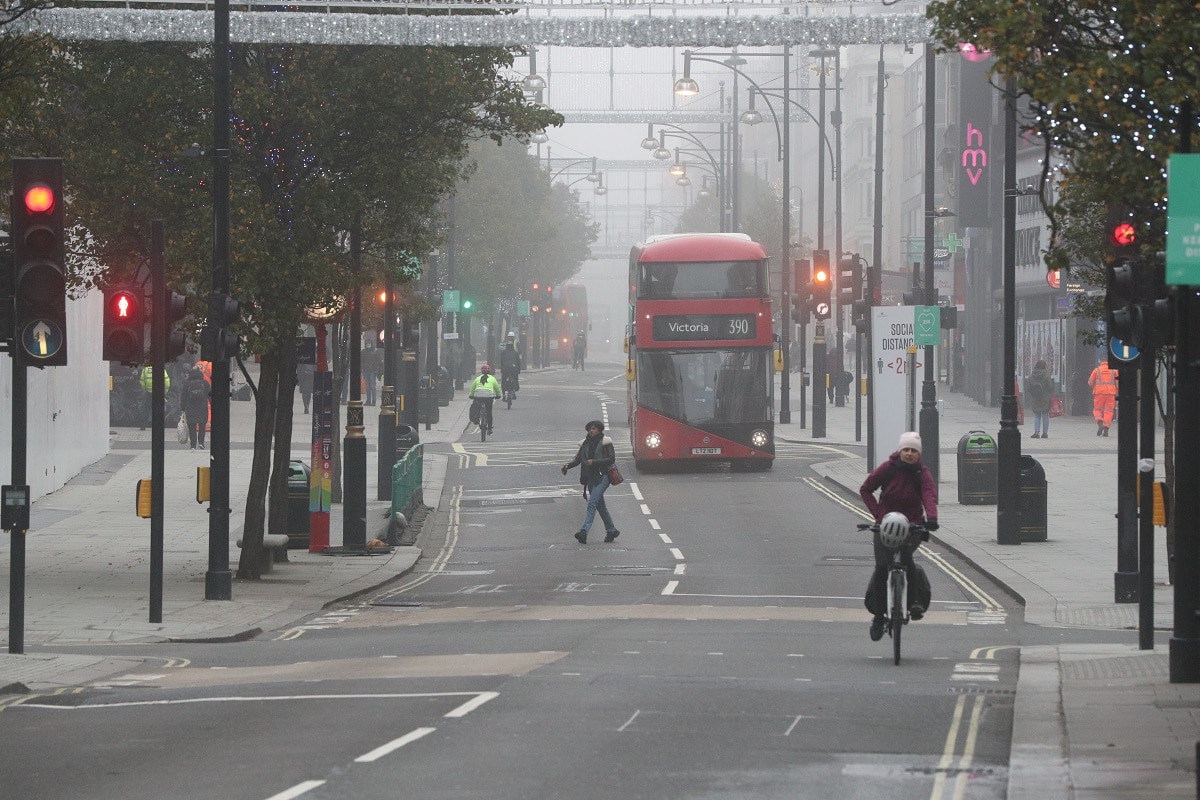Europe made up almost half of the world’s four million new coronavirus cases last week but recorded a nearly 10 per cent fall in infections compared to the week before, the World Health Organisation says.
In the German capital of Berlin, violent clashes between those protesting coronavirus restrictions and police erupted on Wednesday near the city centre after protesters disregarded authorities’ advice to wear masks and physically distance.
“We want our lives back,” read one sign carried by protesters in Berlin.
The latest weekly tally from the UN health agency said the 54 countries in Europe continued to report the most new cases of any region worldwide, 46 per cent, but the decline in cases followed “the strengthening of public health and social measures”.
But as new cases fell, the tally of virus deaths still rose “substantially” in Europe over the last week to more than 29,000 new deaths, the WHO said.
WHO’s Americas region registered a 41 per cent increase in new cases, suggesting that a higher weekly death toll could soon follow there.
The death toll from COVID-19 in the United States approached 250,000 on Wednesday, the day after the country recorded the highest number of victims in nearly four months.
On Tuesday, the pandemic claimed 1,596 lives in the US, more than on any single day since 27 July, contributing to a total of 248,898 confirmed deaths since the pandemic began.
Southeast Asia was the only region that recorded a drop in cases and deaths.
In Europe, the WHO said the sharpest rise in coronavirus cases was in Austria, which had a 30 per cent increase in new cases compared to the previous week.
The WHO also noted the UK was the first country in the region to record more than 50,000 deaths.
Pockets of western Europe have shown signs of turning a corner, particularly in the lowlands near the English Channel.
Belgium said on Wednesday it had taken a major step in containing the resurgence of the coronavirus, reporting a drop in the daily death count for the first time since the latest COVID-19 wave hit this autumn.
Virologist Steven Van Gucht, from the government’s Sciensano health group, said Belgium’s daily average of virus deaths now stood at 185, a 5.0 per cent decrease compared to the average a week ago.
Over the last week, the daily average of hospital admissions dropped 24 per cent and new infections fell 39 per cent.
Officials in the Netherlands, to the north, were easing coronavirus restrictions amid falling infection rates, and were poised to re-open venues like cinemas, museums, libraries, zoos and swimming pools – still with limitations on how many people can visit – after a two-week closure.
Meanwhile, South Korea recorded its largest daily increase in coronavirus infections in nearly three months as it gets set to tighten distancing rules in the greater Seoul area.
The Korea Disease Control and Prevention Agency reported 313 new cases on Wednesday, raising the country’s total to 29,311 including 496 deaths.
It is the first time the country’s daily caseload exceeded 300 since late August.
Authorities in Tokyo announced nearly 500 new cases of the coronavirus on Wednesday, the biggest daily increase in the Japanese capital since the pandemic began.
Japan has recorded a steady climb in new cases across the country in recent weeks and experts have urged officials to step up preventive measures.
Japan has confirmed 120,815 cases overall, including 1913 deaths, according to the health ministry.
Globally, the countries with the biggest number of COVID-19 cases are the US, India, Italy, France, and Brazil.
More than 55.3 million people have been reported to be infected by the coronavirus around the world and 1,332,354 have died.
People in Australia must stay at least 1.5 metres away from others. Check your jurisdiction’s restrictions on gathering limits.
If you are experiencing cold or flu symptoms, stay home and arrange a test by calling your doctor or contact the Coronavirus Health Information Hotline on 1800 020 080. News and information is available in 63 languages at https://sbs.com.au/coronavirus
Please check the relevant guidelines for your state or territory: NSW,Victoria, Queensland, Western Australia, South Australia, Northern Territory, ACT, Tasmania







